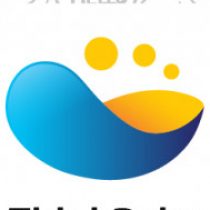In the era of big data, the concept of data lakes emerged as a promising solution to store vast amounts of raw data, irrespective of its structure. Data lakes, often contrasted with traditional databases, offer flexibility and scalability, allowing organizations to store everything from structured tables to unstructured logs, all in one place. However, as data began pouring in from various sources, many enterprises found themselves wading through what felt less like a structured reservoir of information and more like a murky swamp, making quick decision making impractical. Enter Delta Lake. Designed by the same minds behind Apache Spark, Delta Lake emerged as a beacon, transforming these vast data repositories from chaotic swamps into organized, reliable, and high-performing lakes. By enhancing traditional data lakes with ACID (atomicity, consistency, isolation, and durability) transactions, schema enforcement, and a host of other features, Delta Lake promises to provide a structured and efficient approach to big data management, enabling real time analytics and quick decision making.
What is Delta Lake?
Delta Lake's inception can be traced back to the brilliant minds that brought us Apache Spark, a powerful open-source unified analytics engine. Recognizing the challenges faced by data engineers and analysts in managing vast data lakes, the creators of Apache Spark embarked on a new venture, leading to the birth of Delta Lake. At its core, Delta Lake is an open-source storage layer designed to bring structure, reliability, and performance to data lakes. Unlike traditional data lakes that often become cluttered and challenging to manage, Delta Lake introduces a series of transformative features. By leveraging the power of Apache Spark, it extends the capabilities of standard data lakes, ensuring that they are not just repositories of raw data but organized, efficient, and reliable storage systems.
Enhancing Data Lakes
One of Delta Lake's standout features is its ability to superimpose a transactional layer over Parquet, a columnar storage file format, ensuring ACID transactions—a feature sorely missed in many traditional data lakes. But Delta Lake's role doesn't stop at merely enhancing data storage. It actively bridges the gap between structured and unstructured data, ensuring seamless data operations. By providing a robust framework for data integrity, schema enforcement, and version control, Delta Lake ensures that data lakes are not just vast storage units but are also optimized for high-performance analytics and machine learning tasks.
The Importance of ACID Transactions
At the heart of reliable database systems lie ACID (Atomicity, Consistency, Isolation, Durability) transactions. These principles ensure that all database transactions are processed reliably and maintain data integrity. To break it down:
- Atomicity ensures that all operations within a transaction are completed successfully; if not, none of them are applied.
- Consistency ensures that every transaction brings the database from one valid state to another.
- Isolation ensures that the concurrent execution of transactions results in a system state that would be obtained if transactions were executed serially.
- Durability guarantees that once a transaction has been committed, it will remain so, even in the event of power loss, crashes, or errors.
Challenges in Traditional Data Lakes
Traditional data lakes, while offering vast storage capabilities and flexibility, often lacked the stringent transactional properties of ACID. This absence led to challenges like data corruption, inconsistencies, and difficulties in managing concurrent data operations. Without these properties, ensuring data integrity and reliability in large-scale data operations became a daunting task for data engineers and analysts.
Delta Lake's ACID Compliance
Delta Lake addresses these challenges head-on by introducing ACID transactions to traditional data lakes. By overlaying a transactional layer on top of existing data lakes, Delta Lake ensures that all data operations are atomic, consistent, isolated, and durable. This approach not only prevents data corruption and inconsistencies but also simplifies and expedites complex data operations. For instance, with Delta Lake's ACID compliance, operations like merging datasets or rolling back to a previous state become straightforward and reliable. In doing so, Delta Lake transforms data lakes from mere storage solutions to robust, reliable, and high-performance data management systems.
Key Features of Delta Lake
Delta Lake's myriad features, from seamless integration with big data tools to its unique time travel capability, position it as a game-changer in the data management landscape. Its focus on reliability, scalability, and compliance makes it an indispensable tool for modern data-driven businesses.
Seamless Integration with Big Data Frameworks
One of Delta Lake's standout attributes is its ability to effortlessly integrate with a plethora of big data frameworks. Whether it's Apache Hive, Apache Presto or others, Delta Lake acts as a unifying layer, ensuring that data operations across these platforms are consistent, reliable, and efficient.
Scalable Metadata Handling
In big data scenarios, metadata itself can become extensive and complex. Delta Lake tackles this challenge by handling metadata similarly to regular data. By utilizing Apache Spark's distributed processing capabilities, Delta Lake efficiently manages metadata at a petabyte-scale, ensuring tables with billions of partitions and files are processed smoothly.
Time Travel (Data Versioning) and Its Significance
One of the revolutionary features of Delta Lake is 'Time Travel'. It allows users to access previous versions of data, facilitating audits, rollbacks, or experiment reproductions. This data versioning capability ensures that businesses can track changes, understand data evolution, and even revert to earlier data states when necessary, providing a safety net against inadvertent changes or data corruption.
Schema Enforcement and Evolution
Data is dynamic, and its structure can evolve over time. Delta Lake recognizes this and offers robust schema enforcement capabilities. It ensures that data types are accurate, and required columns are present, safeguarding against potential data corruption. Moreover, Delta Lake's schema evolution feature allows for automatic adjustments to table schemas, accommodating changing data structures without cumbersome manual interventions.
Unified Batch and Streaming Source and Sink
Delta Lake eradicates the traditional boundaries between batch and streaming data operations. A table in Delta Lake can serve as both a batch table and a streaming source and sink. This unification means that data ingestion, be it streaming or batch, and data querying can occur simultaneously, optimizing data operations and analytics.
Audit History for Compliance
Technical Deep Dive into Data Lakehouses
In an age where data compliance is paramount, Delta Lake's audit history feature is a boon. Every change made to the data is meticulously logged, providing a comprehensive audit trail. Whether it's for GDPR, CCPA, or other regulatory requirements, this feature ensures that businesses have a clear record of data operations, facilitating compliance and enhancing data transparency.
Use Cases of Delta Lake
Delta Lake isn't just another tool in the data ecosystem; it's a transformative force. With its unique blend of features and adaptability, it caters to multifaceted data needs across industries. Let’s try and understand the breadth of its applications.
Addressing Data Lake Challenges
Traditional data lakes often grapple with issues like inefficient data indexing, partitioning, and the presence of corrupted data files. Delta Lake directly addresses these challenges, ensuring that data is not only stored but also retrieved and processed efficiently.
Data Governance and Lineage Documentation
Ensuring transparency and traceability in data operations is crucial. Delta Lake aids in robust data governance by maintaining detailed lineage documentation. This ensures that businesses can trace back data operations, understand dependencies, and maintain a clear record of data transformations.
Simplifying Data Versioning and Rollback Processes
Delta Lake's time travel feature revolutionizes data versioning. It allows businesses to access previous data states, simplifying rollback processes and ensuring that inadvertent changes or corruptions can be easily rectified.
Ensuring GDPR Compliance
In the age of data privacy regulations like GDPR, having a clear audit trail is indispensable. Delta Lake's detailed logging and ACID transactions ensure that all data operations are recorded, facilitating compliance and enhancing data transparency.
Compatibility with Big Data Tools
Delta Lake seamlessly integrates with a myriad of big data tools and frameworks, ensuring that businesses can leverage its capabilities irrespective of their existing tech stack.
Streaming Analytics
Delta Lake stands as a pillar for streaming analytics pipelines, integrating with frameworks such as Apache Kafka and Apache Spark Streaming. It ensures atomicity and consistency during data ingestion, enabling near real-time analytics on streaming data.
IoT Data Processing
The high-frequency data churned out by IoT devices finds a reliable storage solution in Delta Lake. It not only ingests this data but also facilitates real-time analysis, with its time travel feature allowing retrospective data dives.
Clickstream Analysis
For businesses looking to understand user behavior through clickstream data, Delta Lake offers a robust solution. It ensures data integrity, allowing real-time analytics on user interactions and behaviors.
Fraud Detection and Prevention
Delta Lake's real-time analytics capabilities, combined with its ACID transactions, make it a formidable tool in fraud detection systems. It aids in identifying anomalies and ensuring a reliable audit trail for fraud investigations.
Operational Dashboards and Monitoring
Operational insights are crucial for businesses, and Delta Lake serves as the backbone for dashboards that require real-time data. Whether it's tracking SLA compliance or understanding performance metrics, Delta Lake, with its continuous data ingestion and time travel feature, ensures businesses have their fingers on the pulse.
Delta Lake vs. Alternatives
In the expansive world of data storage and management, several solutions vie for the top spot. Among the notable contenders are Apache HUDI and Iceberg, each bringing its own set of features and capabilities to the table. Apache HUDI, short for Hadoop Upserts Deletes and Incrementals, focuses on providing efficient upserts and deletes in big data lakes. It also offers snapshot and incremental queries, ensuring data freshness and efficient querying. Iceberg, on the other hand, is a table format for large, slow-moving tabular datasets. It emphasizes scalability, boasting features like fine-grained partitioning and first-class support for evolving data in backward-compatible ways. While both HUDI and Iceberg have their merits, Delta Lake distinguishes itself with a more extensive feature set. Its seamless integration with big data frameworks, ACID transaction capabilities, time travel for data versioning, and schema enforcement are just a few of the aspects that give it an edge. Furthermore, Delta Lake's emphasis on ensuring data reliability and consistency across both batch and streaming data operations positions it as a comprehensive solution for modern data challenges.
Conclusion
Delta Lake has proven its worth as a pivotal tool in data management, offering features and capabilities that set it apart. Its emphasis on reliability, efficiency, and adaptability makes it a compelling choice for businesses aiming for enhanced data operations. As we move forward in an era where data is both an asset and a challenge, adopting solutions like Delta Lake can be a game-changer. For businesses looking to unlock the true potential of their data, Delta Lake is undeniably worth considering.



























